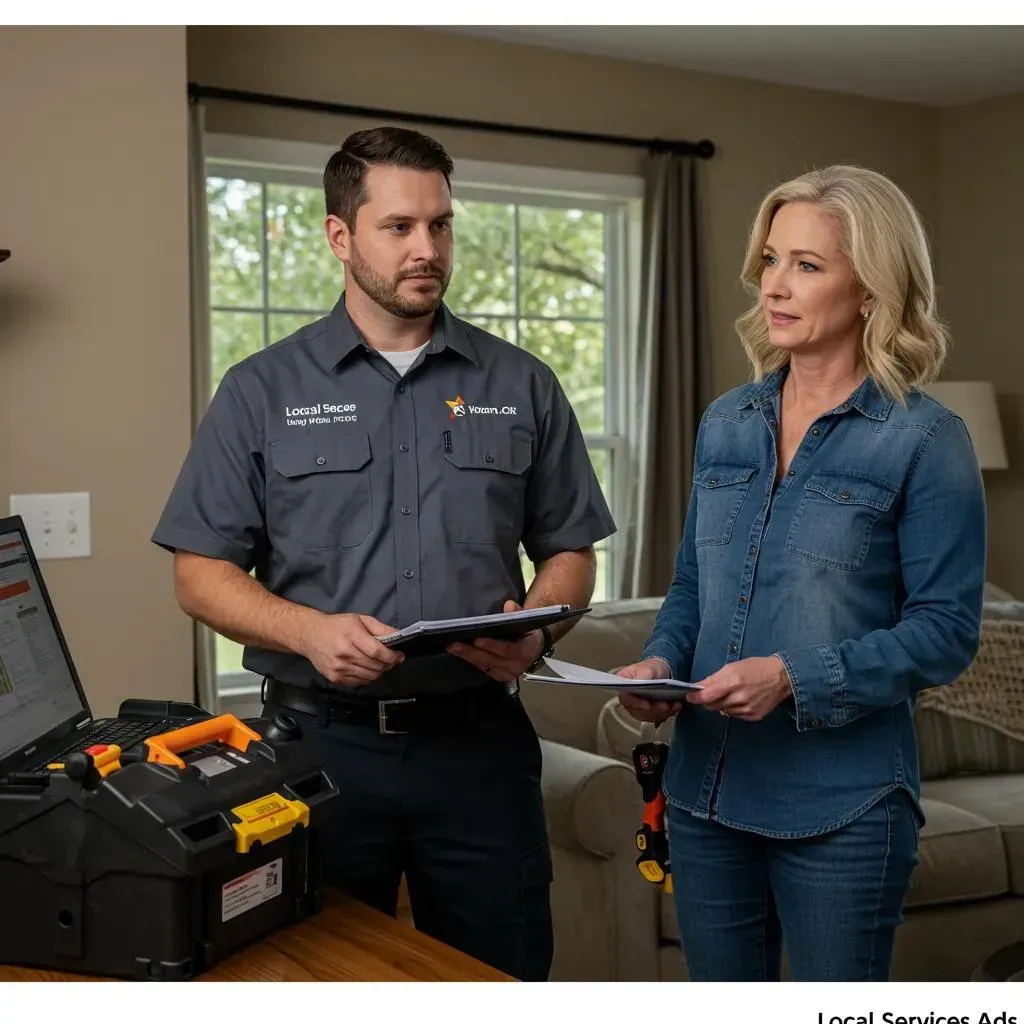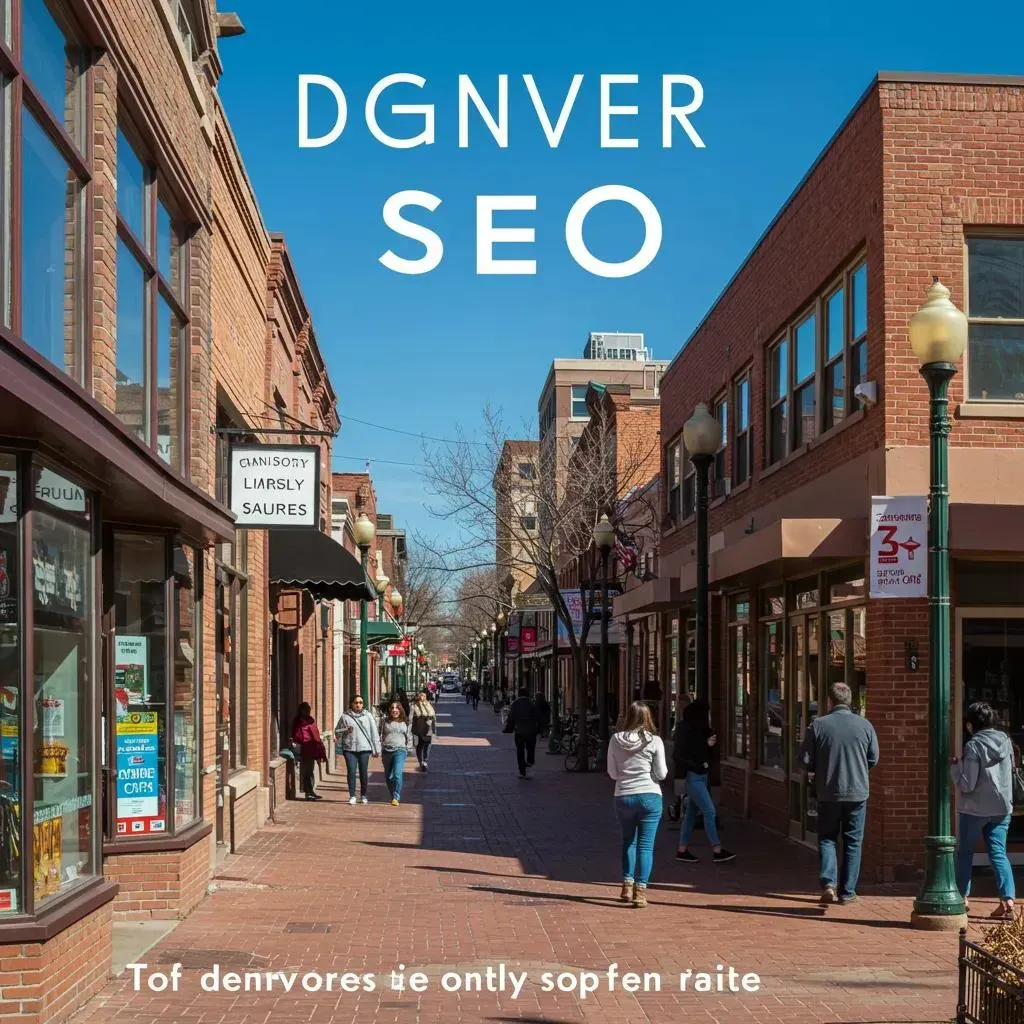Denver Review Playbook: Earn, Reply & Rank Locally
The Denver Review Playbook: How to Earn, Reply, and Rank with Local SEO Reviews

Introduction
Denver businesses that master online reviews gain measurable visibility and trust in local search; this playbook defines the tactical path to earn reviews, reply with purpose, and use review signals to rank higher in the local pack. Readers will learn concrete workflows for requesting reviews, example reply templates, compliance checkpoints, monitoring and AI-assisted sentiment methods, and how to measure review-driven lift in clicks, calls, and visits. The playbook organizes guidance into three pillars—earn, reply, rank—and maps practical steps to tools, metrics, and legal guardrails that matter for Denver markets. Pain points like low review volume, inconsistent responses, and scattered monitoring are addressed with step-by-step processes you can implement this month. The article proceeds through: why reviews matter for Denver local SEO and growth, how to earn them ethically, best practices for responding, how reviews influence ranking, recommended tools and AI workflows, and legal guidelines to reduce risk. Throughout, target keywords such as denver reviews local seo, Google Business Profile Denver reviews, and reply to reviews Denver business are integrated to help practitioners and decision-makers apply these tactics immediately.
Why Do Reviews Matter for Denver Local SEO and Business Growth?
Reviews act as both a consumer trust signal and a search signal: they communicate quality to potential customers and send structured feedback that local search algorithms use to assess relevance and prominence. At a practical level, higher review counts and positive ratings increase click-through rates from search results and the local pack, while review velocity and recent feedback influence recency signals that Google favors. The immediate business benefit is measurable: more reviews typically correlate with higher GBP engagement (clicks, calls, directions), and those engagement events feed rank-improving interaction signals. Understanding these mechanisms lets Denver businesses prioritize review operations alongside citations and on-page optimization. The next section breaks down how review components—volume, recency, rating, and sentiment—function as distinct signals you can measure and improve.
How Do Online Reviews Influence Google Business Profile Rankings in Denver?
Online reviews influence GBP rankings through multiple measurable attributes: review volume signals popularity, recency signals ongoing relevance, ratings convey quality, and review sentiment adds qualitative nuance that natural language processing can parse. Google aggregates these attributes alongside citations, on-page relevance, and behavioral engagement to rank local pack results; thus, a balanced improvement across attributes produces the best ranking lift. Track metrics such as average rating, reviews per month (velocity), percentage of reviews mentioning service keywords, and response rate to measure signal strength. Monitoring these metrics creates a feedback loop where acquisition tactics feed ranking, and ranking improvements produce more visibility and review opportunities.
What Are the Latest Statistics on Review Importance for Denver Businesses?
Current research and industry reporting through 2025 show that consumers check reviews early in the research process and weigh responses heavily when choosing local vendors; many users expect businesses to reply to negative feedback. Statistically, listings with higher average ratings and more reviews receive higher click-through and call rates, with visible impacts on foot traffic in local markets. Local search behavior indicates that users often convert within a short timeframe after viewing a GBP that has recent activity and active owner responses. These trends make review programs a priority investment for Denver businesses seeking measurable traffic and conversion lifts in local search. The following sections provide practical, local-first tactics to increase review acquisition and response quality.
How Can Denver Businesses Effectively Earn More Google Reviews?
Earning more Google reviews is a process that combines timing, convenience, and ethical solicitation: ask promptly after a positive experience, make leaving a review frictionless, and follow platform rules to preserve authenticity. Start with mapped post-transaction touchpoints—receipt, email, SMS, and in-store prompts—and standardize a single-step flow that takes customers directly to the review action. Train staff to request reviews at moments of delight, document requests for auditability, and use localized campaigns tied to Denver events or partnerships to attract community-driven feedback. The table below compares common channels by ease, estimated conversion, and compliance considerations to help prioritize where to invest.
Email follow-up
- Ease to implement: High
- Estimated conversion: 5–15% if link is direct
- Notes: Ensure opt-in and clear identity verification
SMS request
- Ease to implement: Medium
- Estimated conversion: 8–20% for consenting customers
- Notes: Follow TCPA/state rules and obtain proper consent
In-store ask / QR code
- Ease to implement: High
- Estimated conversion: 10–25% from point-of-sale delighted customers
- Notes: Avoid pressure tactics
Receipt or invoice link
- Ease to implement: Medium
- Estimated conversion: 3–8%
- Notes: Works well for B2B and service follow-ups with transaction proof
Post-service automated message
- Ease to implement: Medium
- Estimated conversion: 7–18%
- Notes: Timing matters—send within 24–72 hours for service-based businesses
This channel comparison shows that combining in-person asks with a low-friction digital action (QR or direct message) tends to yield the best conversion while maintaining compliance. The next subsection gives concrete templates and a workflow you can copy.
What Are Proven Strategies to Get Google Reviews in Denver?
Proven strategies center on timing, simplicity, and personalization: ask at the service peak, provide a one-click path to leave feedback, and personalize the request to mention the service or staff. For retail and hospitality, embed QR codes at POS and receipts; for professional services, use a short email with a personalized reference to the completed work and a clear CTA. Train staff with scripts that feel natural and role-play common scenarios so the ask becomes part of the customer experience. Use follow-up cadence of an immediate thank-you message, a single reminder at 48–72 hours, and a final friendly nudge at 7–10 days for non-responders. These steps increase likelihood of authentic, high-quality reviews while preserving goodwill.
Core review-earning tactics Denver businesses should implement:
- Ask at the moment of positive sentiment using a simple, human script.
- Provide a single-action path (QR code or direct message) to reduce friction.
- Personalize requests and track who was asked to create an audit trail.
Summary: Deploying these three tactics together converts happy customers into visible local proof, and consistent execution creates predictable review velocity.
Which Ethical Practices Ensure Authentic and Positive Customer Feedback?
Ethical solicitation protects reputation and complies with platform and legal rules: do not offer incentives for positive-only reviews, avoid scripting that suggests what to say, and never fabricate reviews. Instead, encourage honest feedback and disclose incentivization if a legitimate program is used, following platform-specific rules. Maintain records showing who received requests and how consent was obtained to defend against disputes and to support removal requests when abuse occurs. For businesses in regulated industries, add an identity-verification step to ensure reviews reflect genuine clients while protecting privacy. These practices preserve authenticity and long-term trust—both consumer-facing and algorithmic.
- Recommended compliance-focused actions:
- Document opt-ins and review requests to create an audit trail.
- Avoid conditional incentives that require positive language; offer general rewards disclosed publicly when allowed.
- Use neutral language that invites honest feedback rather than steering sentiment.
Summary: Ethical practices reduce legal risk and maintain the credibility that search algorithms and customers rely on.
What Are Best Practices for Replying to Denver Customer Reviews?

Replying to reviews transforms passive social proof into active reputation management: professional, timely responses increase trust and can mitigate negative impact while reinforcing positive experiences. Adopt a response policy that sets timing (aim for 24–72 hours), tone (empathetic, solution-focused), and escalation rules for complaints requiring offline resolution. Use templates as starting points but customize each reply to reference specifics in the review—this demonstrates attention and reduces repeat complaints. A dedicated triage workflow that categorizes reviews by sentiment and priority helps teams respond efficiently and measure response rate as a KPI. The next two subsections provide concrete templates and explain why timing matters.
How Should Businesses Respond to Positive and Negative Reviews?
Responding well begins with recognizing the sentiment and matching the tone: thank positive reviewers, reinforce specifics, and invite return visits; for negative feedback, acknowledge, apologize where appropriate, offer to make it right, and take the conversation offline when necessary. Use short, clear replies that include the reviewer’s name and reference the service to show authenticity. For fake or abusive reviews, document the issue and follow platform dispute processes without engaging publicly in accusatory language. Below are concise templates that can be adapted across industries.
Response templates to adopt immediately:
- Positive: "Thanks [Name] — we're glad you enjoyed [service]. We appreciate your feedback and hope to welcome you back soon."
- Negative (resolution): "We're sorry to hear this, [Name]. Please contact us at our support channel so we can resolve this promptly."
- Neutral/Detail request: "Thanks for the feedback, [Name]. Could you DM details so we can improve this experience?"
Summary: Templates speed response while allowing customization; using them consistently improves perceived responsiveness and can positively influence future visitors.
Why Is Timely and Professional Review Response Critical for Trust?
Consumers interpret quick, professional replies as signals that a business cares about customer experience and is operationally competent; this perception increases the likelihood of conversion from search to purchase. Timely responses also reduce escalation and often convert dissatisfied customers into loyal ones by resolving issues promptly. From an SEO perspective, a high response rate and ongoing review interaction indicate active management of the GBP, which can indirectly support ranking through engagement signals. Measure response time and resolution rate as part of your reputation KPIs to quantify impact and iterate on the process.
Metrics to track for reply performance:
- Average response time (hours)
- Response rate (% of reviews replied to)
- Resolution conversion (resolved issue → positive follow-up)
Summary: Fast, professional replies build customer trust, reduce churn, and strengthen the local search signals that drive visibility.
How Do Reviews Help Denver Businesses Rank Higher in Local SEO?
Reviews contribute to local ranking through both quantitative and qualitative channels: quantity and rating feed numeric prominence while review content supplies keyword-rich, user-generated descriptions that signal relevance for search queries. Businesses can leverage reviews to improve GBP relevance by encouraging mentions of core services and local modifiers (e.g., "Denver mobile bike repair") without scripting reviews. Combine review activity with on-page optimization, local citations, and backlink efforts to amplify ranking impact. Measuring rank movement alongside GBP engagement and conversion metrics offers a clear picture of ROI. The following subsection explains the local pack mechanics and what to monitor.
What Role Do Reviews Play in the Local Pack and Google Business Profile Visibility?
Reviews influence the local pack through signals such as average rating, review volume, review recency, and the presence of review-rich content that matches searcher intent. Google’s algorithm weighs these factors alongside distance and relevance, meaning a business with strong review signals can outrank proximate but less-reviewed competitors for the same query. Monitor key GBP metrics—search impressions, direct requests for directions, click-throughs, and calls—to see how review improvements translate into real-world engagement. Implement monitoring to track both raw review signals and resulting behavior to tie reviews to tangible outcomes.
How Can Businesses Leverage Reviews to Improve Their Online Reputation in Denver?
A focused reputation program turns reviews into marketing assets: surface testimonials on your site, feature high-impact narratives in social posts and paid ads, and use aggregateRating structured data where platform rules permit. Create a 90-day reputation improvement plan that includes acquisition cadence, response SLA, sentiment monitoring, and promotion of positive reviews in targeted campaigns. Address root-cause issues identified in negative reviews and document changes to show continuous improvement. Cross-platform monitoring—Google, Yelp, Facebook, and industry sites—ensures comprehensive reputation coverage and prevents isolated issues from becoming systemic.
Reputation program checklist:
- Implement a 90-day acquisition and response cadence.
- Promote authentic testimonials in owned channels with proper attribution.
- Monitor sentiment and root-cause trends monthly and adjust operations.
Summary: Systematic use of reviews as both signals and marketing content strengthens reputation and turns feedback into a competitive advantage.
Which Tools and AI Solutions Streamline Review Management for Denver Businesses?
Monitoring and responding at scale requires tools that aggregate multi-platform reviews, automate triage, and assist with sentiment analysis while preserving brand voice through human oversight. Tool categories include monitoring platforms, response workflow systems, AI-assisted drafters, and CRM integrations that connect reviews to customer records. Selection criteria should prioritize multi-source ingestion, customizable templates, sentiment tagging, and integrations with Google Business Profile and local CRMs. Below is a platform comparison to guide tool selection, followed by an AI workflow that operationalizes monitoring and drafting.
Intro: Below compares representative platform categories and core features to match Denver business needs
Monitoring aggregator
- Core feature: Multi-source ingestion
- Best use case / value: Centralizes reviews from Google Business Profile (GBP), Yelp, and Facebook for unified alerts
Response automation
- Core feature: Template + workflow
- Best use case / value: Scales consistent replies with escalation rules and audit trails
Sentiment analysis (AI)
- Core feature: NLP scoring & tagging
- Best use case / value: Prioritizes urgent negative feedback and enables trend detection
CRM integration
- Core feature: Customer linking
- Best use case / value: Connects reviews to transaction history for personalized replies
Summary: Combining a monitoring aggregator with AI sentiment tagging and CRM linkage produces the most practical ROI for small-to-medium Denver businesses by reducing manual noise and speeding high-priority response.
What Are the Best Platforms for Monitoring and Responding to Reviews?
Best-in-class approaches pair a centralized monitoring tool with workflow automation and reporting. Evaluate platforms on criteria such as latency of updates, customization of response templates, ability to assign tasks, and exportable KPI reporting for GBP metrics. Prioritize systems that permit human review of AI-generated drafts to maintain brand voice and compliance. The right toolset reduces time-to-response and improves resolution rates while collecting data for continuous process improvement. After selecting tools, map an operational flow that turns alerts into assigned tasks, drafts, approvals, and posted replies.
- Tool evaluation checklist:
- Multi-platform ingestion and real-time alerts.
- Template-driven responses with human approval gates.
- Reporting for review volume, sentiment trends, and response KPIs.
Summary: A monitoring tool plus structured response workflows yields predictable improvements in response rates and customer outcomes.
How Can AI Assist in Analyzing Review Sentiment and Drafting Responses?
AI can streamline review operations by classifying sentiment, extracting intent (refund request, praise, complaint), and generating draft responses that a human can edit. An effective AI workflow runs: monitor → analyze sentiment & priority → generate draft reply → human review & brand-voice edit → post. Quality controls include a human approval step, confidence thresholds for fully automated replies, and continuous retraining on brand-specific reply examples. Use AI to triage volume and surface trends while preserving human judgment for high-impact interactions. Ethical and privacy boundaries should guide what data is surfaced and how personal information is handled.
AI workflow steps:
- Monitor incoming reviews from all sources.
- Score sentiment and tag intent automatically.
- Produce draft replies for human review and approval.
Summary: When used with human oversight, AI accelerates triage and frees staff to resolve the most consequential issues.
Integration: For agencies or teams that want a hands-on implementation partner, Lingows Media offers Local SEO & Google Strategies and Google Business Profile Master services that operationalize AI-driven review analysis and GBP optimization specifically for Denver businesses. These services can help map tool selection to workflows and integrate monitoring with local SEO programs while preserving the majority of control and voice with the business.
What Legal Guidelines Should Denver Businesses Follow Regarding Online Reviews?
Legal and platform rules govern solicitation, disclosure, and handling of reviews: the FTC’s endorsement guidelines require transparent disclosure of material connections, and platforms like Google and Yelp forbid posting fake reviews or selectively soliciting only positive feedback. Businesses should implement documented processes for requesting reviews, retain records of opt-ins and communications, and follow platform dispute mechanisms for fraudulent content. Regular compliance audits help prevent inadvertent violations and protect brand reputation. The table below summarizes key regulations and practical actions to follow.
Intro: The following table outlines regulations and clear operational actions to remain compliant when soliciting and handling reviews.
| Regulation / Guideline | Applies To | Practical Action |
|---|---|---|
| FTC Endorsement Guidelines | All public endorsements | Disclose material connections; avoid misleading incentives |
| Platform policies (Google/Yelp) | Platform-specific solicitation rules | Follow each platform's solicitation rules; do not post fake reviews |
| State consumer protection laws | Local business practices | Maintain records of requests and disclosures; consult legal counsel if unsure |
Summary: A documented program that includes disclosure practices, recordkeeping, and adherence to platform rules reduces legal exposure and preserves trust with customers and marketplaces.
What Are the Key Regulations Affecting Review Solicitation and Responses?
Key rules include not fabricating reviews, avoiding review factories or third-party schemes, and disclosing paid endorsements. Platform policies typically prohibit offering compensation for positive-only reviews while allowing neutral incentives when properly disclosed, though enforcement varies. Documenting how review requests are made and keeping opt-in records provide defensible evidence if disputes arise. For Denver businesses, follow national guidelines and be mindful of any additional state-level consumer protection rules that affect solicitation methods.
Compliance checklist for solicitation:
- Never submit or purchase fabricated reviews.
- Disclose any material connection or paid promotion.
- Keep records of consent and request history for auditability.
Summary: Clear documentation and transparent practices protect both the business and consumers while keeping review programs sustainable.
How Can Businesses Avoid Common Review-Related Legal Pitfalls?
Avoid pitfalls by designing review programs with transparency and recordkeeping from day one: standardize scripts that request honest feedback, keep a log of who was asked and when, and ensure any incentivization is disclosed per platform and FTC rules. When encountering fraudulent or abusive reviews, use the platform dispute tools and maintain evidence of transactions or communications. Train staff on compliant solicitation language and on procedures for escalating legal concerns to management or counsel. These operational safeguards prevent exposure and maintain the integrity of your reputation program.
Operational steps to avoid pitfalls:
- Standardize and document all request scripts and consent procedures.
- Use platform dispute processes with supporting evidence for fraudulent reviews.
- Train staff on compliant language and recordkeeping expectations.
Summary: Practical, documented processes combined with staff training minimize legal risk and keep review programs sustainable for long-term growth.
For Denver businesses ready to move from strategy to execution, consider engaging a local specialist: Lingows Media provides Local SEO & Google Strategies and Google Business Profile Master services to help implement review acquisition, monitoring, and AI-assisted response workflows tailored to Denver markets. These focused services can accelerate implementation while aligning with platform rules and local SEO goals.
Frequently Asked Questions
1. What are the best ways to monitor online reviews for my Denver business?
Monitoring online reviews effectively involves using specialized tools that aggregate feedback from multiple platforms like Google, Yelp, and Facebook. Look for monitoring solutions that provide real-time alerts, sentiment analysis, and customizable reporting features. These tools can help you track review trends, respond promptly, and maintain a positive online reputation. Additionally, consider setting up a dedicated team or individual responsible for regularly checking and managing reviews to ensure no feedback goes unnoticed.
2. How can I encourage customers to leave reviews without being pushy?
Encouraging customers to leave reviews can be done subtly by integrating requests into the customer experience. Timing is crucial; ask for feedback shortly after a positive interaction, such as after a purchase or service completion. Use simple, friendly language in your requests, and provide easy access to the review platform, such as a QR code or direct link. Emphasizing the value of their feedback and how it helps your business can also motivate customers to share their experiences without feeling pressured.
3. What should I do if I receive a negative review?
Receiving a negative review can be challenging, but it’s an opportunity to demonstrate excellent customer service. Start by acknowledging the reviewer’s concerns and apologizing if appropriate. Offer to resolve the issue offline by providing contact information or inviting them to discuss their experience further. This approach shows potential customers that you care about feedback and are committed to improving. Always respond professionally and avoid engaging in arguments, as this can reflect poorly on your business.
4. How can I measure the impact of reviews on my business performance?
To measure the impact of reviews on your business, track key performance indicators (KPIs) such as click-through rates, call volume, and foot traffic before and after implementing a review strategy. Use tools to analyze changes in your Google Business Profile metrics, such as search impressions and engagement rates. Additionally, consider conducting customer surveys to gather qualitative data on how reviews influence their purchasing decisions. This comprehensive approach will help you understand the tangible benefits of your review management efforts.
5. Are there specific legal guidelines I should follow when soliciting reviews?
Yes, there are several legal guidelines to consider when soliciting reviews. The FTC requires businesses to disclose any material connections with reviewers, such as incentives for feedback. Additionally, platforms like Google and Yelp have strict policies against posting fake reviews or selectively soliciting only positive feedback. It’s essential to maintain records of your review requests and ensure compliance with local consumer protection laws to avoid legal pitfalls and maintain your business's credibility.
6. How can I use positive reviews in my marketing strategy?
Positive reviews can be powerful marketing tools. Feature them prominently on your website, social media channels, and in promotional materials to build trust with potential customers. Consider creating case studies or testimonials that highlight specific customer experiences. Additionally, using structured data markup for reviews can enhance your search visibility and attract more clicks. By showcasing authentic customer feedback, you can leverage social proof to influence new customers and drive conversions.
7. What role does AI play in managing online reviews?
AI can significantly enhance review management by automating sentiment analysis, categorizing feedback, and generating draft responses. AI tools can help prioritize urgent reviews, allowing businesses to focus on high-impact interactions. By integrating AI into your review management process, you can streamline operations, reduce response times, and maintain a consistent brand voice. However, it’s crucial to have human oversight to ensure that responses align with your brand’s values and to handle complex customer interactions effectively.
Conclusion
Mastering local SEO reviews is essential for Denver businesses seeking to enhance visibility and build trust with potential customers. By implementing effective strategies for earning and responding to reviews, businesses can significantly improve their Google Business Profile rankings and drive more engagement. Take the next step in optimizing your online reputation by exploring our tailored services designed specifically for Denver markets. Start transforming your review management today and watch your business thrive.














